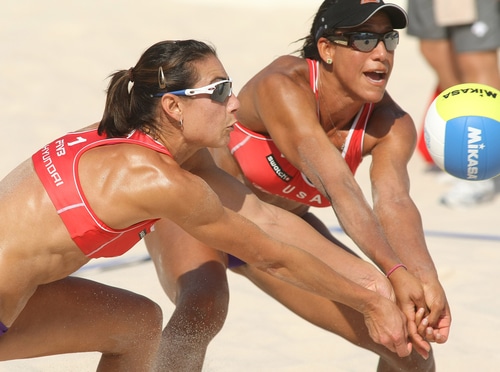
Iron
Iron deficiency tops the list of mineral deficiencies that young female athletes are most susceptible to. Low iron levels are even more common in females who eat a vegetarian diet and those who eat too few calories since iron is more easily absorbed from meat than from plant sources. Iron deficiency is so common among young females because they lose iron through menstrual bleeding. In addition, athletes lose small amounts of iron through sweat and through their digestive tract during training.
Runners also damage red blood cells when their feet repeatedly strike the ground, a phenomenon called foot strike hemolysis. This can all contribute to low iron levels. Athletes who have iron deficiency anemia usually have poor exercise performance due to fatigue and the inability to carry as much oxygen to muscles and tissues. That’s why it’s a good idea for female athletes to get blood tests done every six months to determine their iron status, especially if they have heavy menstrual periods or eat a vegetarian diet.
Calcium
Calcium is the most abundant mineral in the body and one that’s critical for maintaining bone density. Vitamin D aids in the absorption of calcium, so it’s another important nutrient for bone health. Depending upon age, females need between 1,000 to 1,300 milligrams of calcium a day. Getting this amount may be a challenge, especially for female athletes who diet or don’t eat dairy products.
Whether calcium supplementation is a good alternative is under debate. Some preliminary research shows that supplemental calcium may increase the risk of heart disease. That’s why it’s best to get calcium naturally through food sources. Some non-dairy sources of calcium include canned salmon with the bones (185 mg), rhubarb (174 mg), spinach (138 mg), tofu (130 mg) and almonds (92 mg). Female athletes need to plan their diet carefully to get enough calcium to maintain healthy bones.
Zinc
Zinc contributes to more than 300 chemical reactions in the body. It’s important for growth, wound healing, sexual function and for taste and smell. Low zinc levels can cause menstrual irregularities in women. Vegetarian athletes are at higher risk for zinc deficiency since zinc is most abundant in animal products, especially poultry, red meat, and oysters. Non-meat sources include pecans, peanuts, walnuts, wheat germ, and eggs.
What about zinc supplements? Zinc is another example of a mineral that it’s best to get through diet. Zinc supplements can interfere with copper absorption, which can lead to anemia. Females need between 8 and 9 milligrams of zinc daily. Most poultry and red meat have between 4 and 5 milligrams of zinc, so meat eaters should have no problem meeting their zinc requirement. The best non-meat source of zinc is wheat germ. A quarter cup of wheat germ contains 4.7 milligrams of this critical mineral. Active women would do well to add wheat germ to their cereal in the morning to help boost their zinc intake.
The Bottom Line?
These three minerals are critical for good health. That’s why it’s important for all athletes to make sure they’re getting enough foods that contain their minerals in their diet.
References:
Medscape.com. “Effect of Calcium Supplements on Risk of Myocardial Infarction and Cardiovascular Events: Meta-analysis”
Sports Med 2001 31(8), pp577-82.
Krause’s Food, Nutrition, and Diet Therapy. Eleventh edition. 2004.
NIH. Office of Dietary Supplements. “Zinc”
Related Articles By Cathe:
The Two Most Important Minerals for Heart Health That You’re Not Getting Enough Of
New Research Shows the Mineral Copper In Your Diet May Play Key Role in Fat Metabolism
Do Micronutrient Deficiencies Increase the Risk of Cancer?
Trace Minerals: What They Are and How Exercise Affects Them
Zinc: the Mineral You Need More of This Winter?
Do You Need a Mineral Supplement if You Work Out?
5 Reasons You Need More Zinc in Your Diet if You Exercise
New Study Reveals 7 Nutrients Most Adults Don’t Get Enough Of

